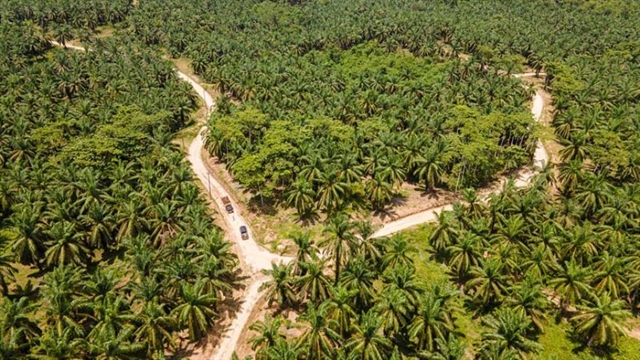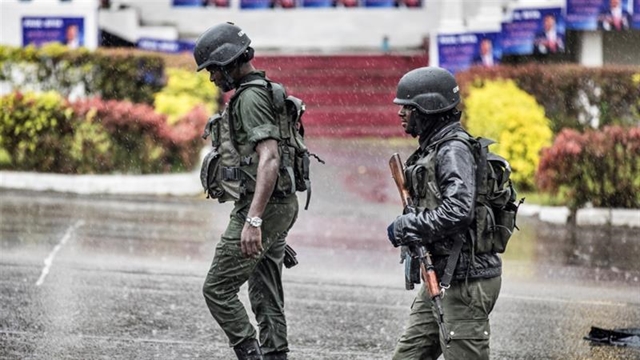 World
World


|
| Soldiers on street of Cameroon. The conflict in the country has left more than 3,000 people dead. AFP/VNA Photo |
YAOUNDÉ – Cameroon's presidency admitted on Tuesday that three soldiers acting with militants killed 13 civilians including 10 children in an anglophone region in the west of the country in February.
The central African country's government had previously denied any role in the massacre in the region, where English-speaking separatists have been fighting the armed forces for the past two years.
According to the United Nations, the massacre on the night of February 13 left 23 civilians dead including 15 children in the village of Ntumbo.
The UN said nine of the children were aged under five and that two of the victims were pregnant women.
A Human Rights Watch tally published on February 28 said 21 civilians were killed, including 13 minors and a pregnant woman.
Citing witness accounts, HRW blamed the killings on between 10 and 15 troops from an elite rapid intervention battalion which was backed by "at least 30 armed Fulani" militiamen.
In a statement read over state radio on Tuesday, the president's office said three soldiers and a vigilante group stormed a separatist base, killing five, before "discovering that three women and 10 children were killed" in the firefight.
"Overcome with panic, the three soldiers helped by some members of the self-defence group tried to hide the incident by setting fires," the statement said.
The army had initially claimed that the deaths were an accident after fuel supplies exploded into flames during a gun battle with separatists.
After NGOs alleged that the army and a Fulani militia ally were responsible, President Paul Biya responded to international pressure by demanding an investigation into the killings.
Sergeant gave 'biased' account'
The first results from that investigation came on Tuesday, with Biya ordering the arrest of the sergeant who led the "reconnaissance mission" raid.
The report into the incident said the sergeant did not have his charges under control and gave a "biased account to his superiors" on which the government based its initial statement about the incident.
English speakers account for nearly a fifth of Cameroon's population of 24 million, who are majority French-speaking.
Most of the anglophone minority live in two western regions called the Northwest and Southwest, which were once British colonies in West Africa.
Decades of grievances at perceived discrimination brewed into a declaration of independence in October 2017, which was followed by a government crackdown and a separatist insurgency.
The declaration has not been recognised internationally and Biya, in power for 37 years, has refused demands to return to a federal system.
Rights groups have accused both sides of atrocities in the conflict, which has left more than 3,000 dead, closed schools and clinics and forced 700,000 people to flee their homes. – AFP




